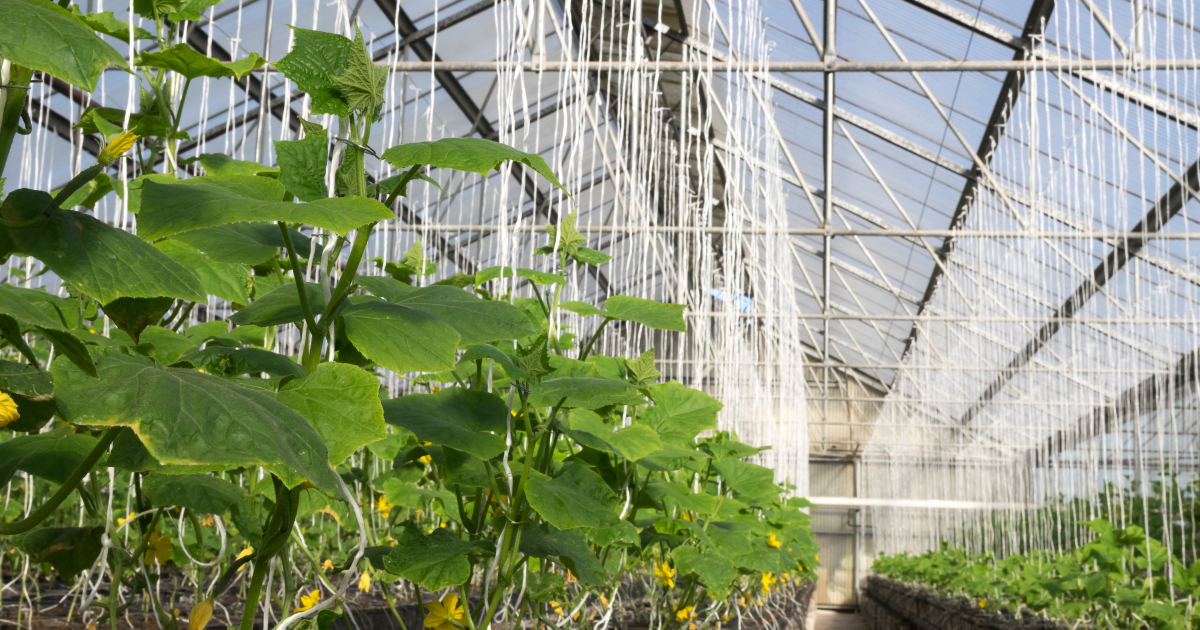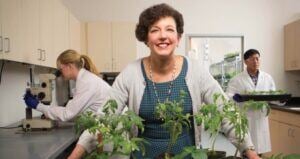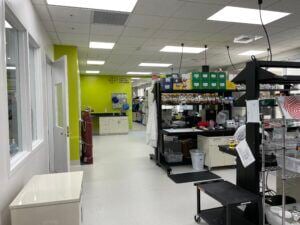
Harvesting Success: How Collaboration Fuels Agtech Advancements

Collaboration is critical when it comes to technological advancements in agriculture, notably in agtech. The industry ecosystem continues to thrive through partnerships between agribusinesses, government, entrepreneurs, investors, and educators.
Agtech is now a nearly $30 billion industry globally with farmers steadily adopting a variety of innovations to help them improve efficiency and production. Technological advancements involving everything from artificial intelligence (AI) and blockchain to drones and self-driving tractors are helping farmers tackle mounting challenges under the realities of climate change.
In recent years, there has been a significant increase in investment in agtech, reflecting a strong interest in sectors related to food production. With the world’s population projected to reach 10 billion by 2050, up from 8 billion today, the need for advancements in agriculture and food technology is more pressing than ever. In 2022 alone, $29.6 billion was invested into agrifood tech startups globally, according to AgFunder.
Despite the state-of-the-art innovation that defines the agtech industry today, a critical but understated necessity for success is collaboration and community. Key stakeholders in government, agribusiness, investment, education, and even media need to align for success.
Better Together: The Need for Collaboration

Pam Marrone, Invasive Species Corp Founder
“You can’t do it alone — to launch a product you need stakeholders, and you need to get [the product] through regulators. You need partners for commercial and you need customers,” says Pam Marrone, who has founded four companies, including most recently Invasive Species Control Corporation. “For me the basis of any innovation adoption is what do your customers think. I’ve always had a very high collaboration with my customers for every company I started.”
For agtech innovators, access to farmers is important as they are often the end users or customers. Marrone has partnered with farmers who beta test her products. For example, she previously collaborated with Javier Zamora, farmer and owner of JSM Organics, on research.
Shely Aronov, founder and CEO of InnerPlant, created her own community to connect with farmers. InnerPlant is an agbio startup company based in Davis, California that grows genetically engineered living sensor plants that signal when stressed whether by pests or lack of water.

In 2021 Aronov launched InnerCircle — a membership-based organization for farmers who seek to collaborate on initiatives such as research or developing innovation.
“We started it mostly because everyone would tell us that farmers don’t care about new technologies and they don’t adopt anything new,” says Aronov. “We really care about what we do, it wasn’t just for the investors, it was mostly for us. It was if we build it will they come?”
Today, InnerCircle has some 85 members, most of them farmers who in total own some 700,000 acres of land in North America. Earlier this year, InnerCircle hosted its first conference and in-person gathering where members had the opportunity to network and share knowledge.
“I believe that in agriculture you either find smart ways to work with the industry or you’re probably going to fail, and you might fail fast and just not get any traction or you might fail slowly,” says Aronov. “The way to do it is to get industry guys really interested in what you do as a startup and foster those collaborations. Offer them something that helps them become a better business. It’s not about innovation, it’s not just about helping the farmers, it’s really about their business and bottom line.”
In 2022, InnerPlant received $16 million in a funding round led by John Deere, and earlier this year earned a $300,000 grant from the United Soybean Board.
The Rise of Agtech Incubators
A growing number of accelerator programs have also served as hubs for innovators and entrepreneurs, creating a community that fosters partnerships. AgStart, based out of Davis, California, is a non-profit incubator for agrifood entrepreneurs and was founded as a public-private partnership of donors and sponsors. The accelerator includes a wet-chemistry laboratory incubator facility that came to fruition through donations of equipment and instruments from several established companies in our industry.

AgStart Laboratory
AgStart also earned grants from government agencies at the federal, county, and local level, and received a loan guarantee from California, “all of whom were driven by the promise of economic benefits to our region if our entrepreneurs could be successful,” explains John Selep, AgStart’s Executive Director.
Selep notes that success is an ecosystem of entrepreneur-support organizations, universities conducting research, scientists, researchers, and businesspeople and “investors who are willing to provide funding to see if a new idea might have merit and a chance to become a self-sustaining company; mentors and advisors who can provide critical advice and connections to young entrepreneurs.”
As agtech continues to grow and evolve into a nearly $30 billion global industry, collaboration will remain a key component in fueling advancements. Success requires a collective effort, with all stakeholders coming together to align their goals, share their expertise, and pool their resources. Together, they can drive the innovation and progress needed to address the pressing challenges facing the agriculture industry and ensure a sustainable and prosperous future for farmers and consumers alike.
Amy Wu is an award-winning writer for the women’s ag and agtech movement and the author of “From Farms to Incubators: Women Innovators Revolutionizing How Our Food is Grown.”
Discover how Gate 39 Media supports agribusiness clients through inbound marketing and custom agricultural technology solutions.
You might also like:
Editor’s Picks
Summer is here, and that means it’s BBQ season — a time for hot-off-the-grill favorites, refreshing sides, and sweet treats to finish it all off. But...


Connect with us to discover how we can help your business grow.
.jpg)
![What’s on Your Marketing Plate This BBQ Season? [Take the Quiz!]](https://www.gate39media.com/hubfs/Marketing%20BBQ.jpg)